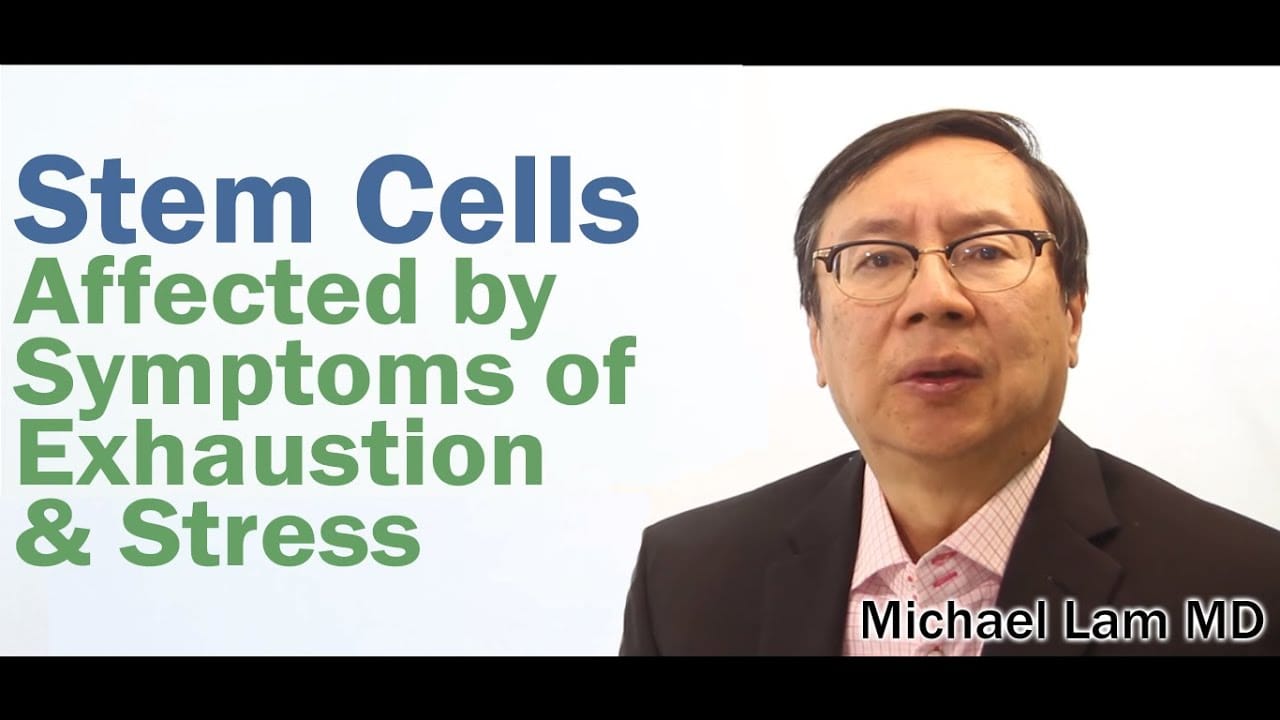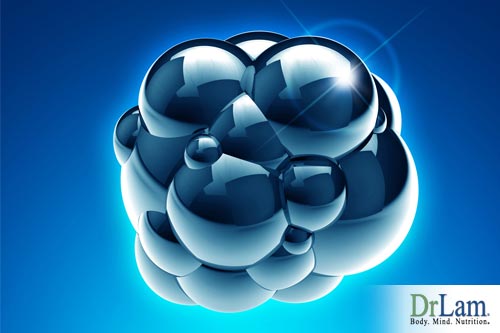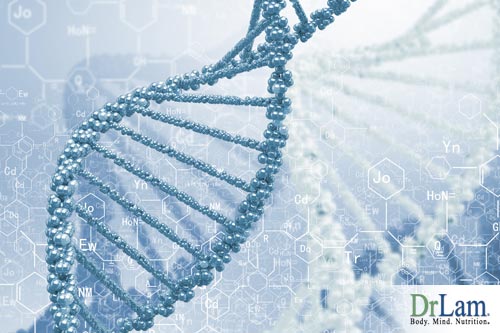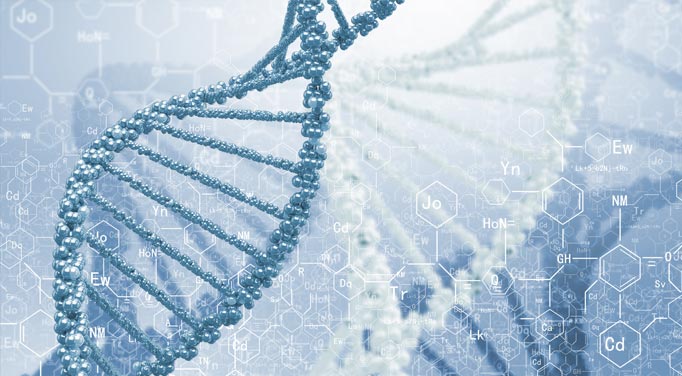
 Normally most adult stem cells remain dormant or near dormant, in a state where they rarely divide and use very little energy. Scientists hypothesized that remaining dormant protected these cells from premature aging, according to Dr. Michael Milsom, of the Heidelberg Institute for Stem Cell Technology and Experimental Medicine in Germany. Stem cells act completely different when stress is high and symptoms of exhaustion start to appear.
Normally most adult stem cells remain dormant or near dormant, in a state where they rarely divide and use very little energy. Scientists hypothesized that remaining dormant protected these cells from premature aging, according to Dr. Michael Milsom, of the Heidelberg Institute for Stem Cell Technology and Experimental Medicine in Germany. Stem cells act completely different when stress is high and symptoms of exhaustion start to appear.
However, in times of high physiological stress such as can be induced by chronic infection or blood loss, a particular type of stem cell found in the red bone marrow and known as hematopoietic stem cells (HSCs), are suddenly aroused and stimulated to divide rapidly. Imagine sleeping soundly and suddenly being woken and forced to perform a complicated task without waking up properly. Just like you are more likely to make mistakes while you are not alert; forcing your stem cells to rapidly go from dormant to a state of heightened activity, accelerating their metabolism, synthesize DNA, and begin dividing increases the possibility that something will go awry.
Milson and his colleagues have directly observed the damage that can occur in DNA of HSCs during times of high physiological stress. They found that the rapid increase in metabolism of stem cells during high stress conditions leads to increased production of DNA damaging reactive metabolites. When the production of these metabolites coincides with the replication of DNA in the cell, the cell can acquire a number of potentially carcinogenic mutations or even die.
Normally, stem cells are able to correct the majority of damage caused by stress, but the more they experience symptoms of exhaustion and stress, the less efficiently the cells are able to repair the damage and the more likely they are to mutate or die.
Milsom explains that this process may explain how damage to DNA of stem cells accumulates over time and how the cells lose the ability to repair itself.
 Researchers also examined the effects of stress on mice with a rare inherited DNA defect known as Fanconi anemia. Human patients with Fanconi anemia frequently develop cancer, and 90% of them experience a failure of the bone marrow to produce new blood cells. In mice, the defect does not normally cause bone marrow failure. The researchers thought that DNA damage caused by physiological stress was the difference in the mice and humans with the disorder. The researchers subjected the mice to stimuli that mimicked extended viral infection, after which the mice developed the same bone marrow failure so often seen in human patients.
Researchers also examined the effects of stress on mice with a rare inherited DNA defect known as Fanconi anemia. Human patients with Fanconi anemia frequently develop cancer, and 90% of them experience a failure of the bone marrow to produce new blood cells. In mice, the defect does not normally cause bone marrow failure. The researchers thought that DNA damage caused by physiological stress was the difference in the mice and humans with the disorder. The researchers subjected the mice to stimuli that mimicked extended viral infection, after which the mice developed the same bone marrow failure so often seen in human patients.
Milsom explains that this information sheds new light on how this particular disease operates and how it might be treated. Prof. Dr. Andreas Trumpp, head of the Division of Stem Cells and Cancer at the DKFZ, and director of HI-STEM is hopeful that these findings might lead to the development of strategies that will reduce damage to stem cells and slow aging and lower the risk of cancer.
By using the Adrenal Fatigue Diet – that balances high quality protein, fat, and carbohydrates – with proper nutritional supplementation, we can promote proper adrenal gland function. Sleep is another critical piece to a healthy body, for with proper rest the need for cortisol recedes, which decreases stress on adrenals and gives our body a chance to repair itself. Finding a way to remove or decrease the amount of stress in our lives promotes well-being and encourages proper stress response from the NeuroEndoMetabolic (NEM) system. Removal of stress not only prevents DNA damage, but plays a role in disease prevention, as well as reducing symptoms of exhaustion.
 We are only in the early stages of understanding how stress can affect cells and their functions. This paper is very significant because it alerts us to the importance of stress reduction. Imagine the 70 trillion cells of our body living in a stress free state! How can a body that is happy inside not reward you? It’s simple logic from a natural medicine perspective. Yet to conventional medicine, this can be a foreign concept. Ancient civilizations knew all along the importance of quiet solitude, mindfulness, and reflective mediation to reduce stress along with proper breathing for stress reduction. The basics of good health have not changed in the past 5000 years - sunshine, clean air, sleeping early, rising early, taking things in stride, and good and healthy food. Living in the modern metropolitan world has made these basics of life hard to attain for most. We need good nutritional supplementation to offset the negative effects of environmental toxins and protect our cells. We have to be proactive to stay alive!
We are only in the early stages of understanding how stress can affect cells and their functions. This paper is very significant because it alerts us to the importance of stress reduction. Imagine the 70 trillion cells of our body living in a stress free state! How can a body that is happy inside not reward you? It’s simple logic from a natural medicine perspective. Yet to conventional medicine, this can be a foreign concept. Ancient civilizations knew all along the importance of quiet solitude, mindfulness, and reflective mediation to reduce stress along with proper breathing for stress reduction. The basics of good health have not changed in the past 5000 years - sunshine, clean air, sleeping early, rising early, taking things in stride, and good and healthy food. Living in the modern metropolitan world has made these basics of life hard to attain for most. We need good nutritional supplementation to offset the negative effects of environmental toxins and protect our cells. We have to be proactive to stay alive!

